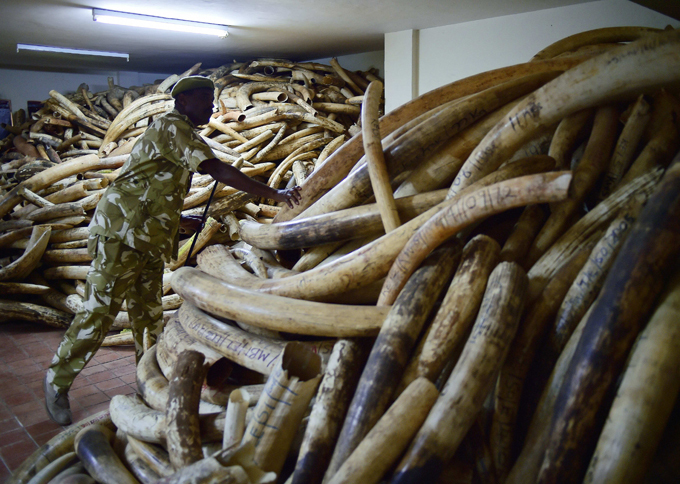East Africa to harmonize laws on wildlife trafficking
"We want all countries to have tough punishments for the perpetrators like in Kenya where they have a life sentence."
The East African region has embarked on harmonizing laws on illegal wildlife trade as part of efforts to fight vice.
The director, ministry of tourism, wildlife and antiquities, James Lutalo, said they are already working on mechanisms on how they can combat the illicit trade.
"We want our laws to be harmonized. We want all countries to have tough punishments for the perpetrators like in Kenya where they have a life sentence," he said.
Lutalo disclosed this while closing a five-day workshop training for law enforcement officers from different agencies on the prevention of wildlife trafficking in Entebbe. It was facilitated by the International Fund for Animal Welfare (IFAW).
Lutalo said that although the entire East African region remains a transit route of wildlife trafficking, Uganda remains the top-most used route for many wildlife items because of its porous borders and weak laws.
Margaret Kasumba, the acting law enforcement coordinator at the Uganda Wildlife Authority (UWA) said they seized some 4,000kg of ivory between 2014 and 2015.
She said many items go undetected due to poor coordination of various agencies and lack of skills by law enforcers.
Uganda Revenue Authority (URA) and Police also impound 4,310kg of ivory and rhino horns in 2015.

Abel Kagumire, the manager, enforcement operations at URA, said most items were seized at Entebbe Airport disguised as shear butter, while others were camouflaged as matooke and aircraft equipment in transit to Singapore and Netherlands.
Lutalo said wildlife trafficking is categorized as a serious organized crime, alongside drugs, human and arms trafficking, saying it needs to engage the entire enforcement chain from detection to prosecution of perpetrators.
He said the ministry has already submitted a cabinet memorandum pushing for domesticating the CITES Convention.
"Once it is domesticated, it will help to stop any commercial trade that involves an endangered species. Most of the species on Uganda's quarter for sustainable utilization are not on the CITES list.
CITES is the only convention that is supposed to regulate trade in wildlife specimen across the globe.
Over 172 parties have signed the convention with the view to help cross-border control of trade, including elimination of illegal trade.
Lutalo said it is only when Uganda domesticates the CITES law that it will have the force of law in the courts of the country.
James Isiche, the regional director of International Fund for Animal Welfare (IFAW), said they are ready to support the collaboration of UWA, URA and other agencies to fight the vice.
"We are also going to sign a formal agreement between URA and UWA to strengthen our bond. We need to work as region to fight this problem. As IFAW we pledge our support."
Mohammed Elsayed, a senior facilitator at IFAW, attributed to the problem in the region to poor coordination of agencies and porous borders.
According to UWA, Uganda loses sh1bn in illegal wildlife trade annually.